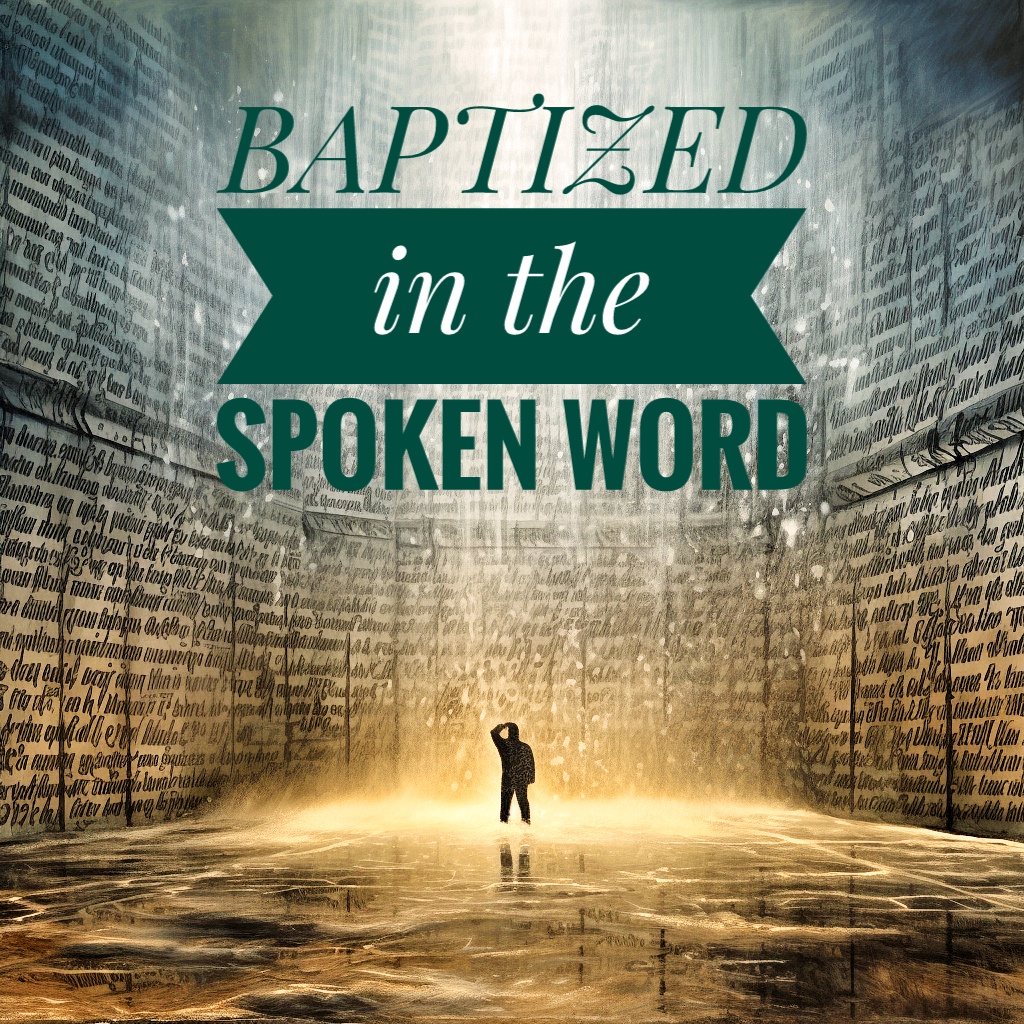
Baptized in the Spoken Word
Baptized in the
Spoken Word
Intro
I didn’t know the word Appalachia until I met David, and have since come to learn it goes beyond a word. It’s a world. Storytellers steeped in tradition, rocking on porches, drinking coffee, and exhaling wisps of smoke from cigarettes, watch as their sky opens. Sometimes storms release, sometimes a story. Sometimes we are lucky to know them. I’m a lucky one.
Please allow me to introduce my guest blogger this week. David Sweet, as he answers my question, “What inspires you to write?”


Dad’s eyes lit up when I told him tales about his great-great-grandfather, George Burkhart. George, a legend in Harlan County, Kentucky, moved his family to Crank’s Creek in the late 1700s; they lived for a time inside a large, hollowed-out sycamore tree in that virgin forest of America’s early western frontier. I told my dad I had discovered that ol’ George also danced, played fiddle, cured people and animals of curses placed upon them by witches, fathered a child at 102 (a most interesting tale), and lived to be 116 years old. Newspaper articles from Cincinnati to Kansas City covered these accounts about the oldest living man in America in 1820. My dad, contemplating George’s legacy, wanted more.
What makes this remarkable is that my dad rarely talked to us when we were kids. A Baptist lay pastor all of my life, I heard him talk about his life sometimes in his sermons, but he rarely talked at home. A working-class man, sometimes working 12-hour shifts, six days a week, he also labored on our small farm and pastored a rural church. I suppose he didn’t have much time to talk to us. That is, until he retired in 1994.
Dad passed away in 2015, but in that 21 year span he began to open up to us. He talked more as his years on this earth dwindled. A few years before his passing, I shared George Burkhart’s legacy with him. Aware of my life-long passion for writing, he encouraged me to write about George and others. Dad opened up about his childhood, telling me interesting anecdotes about himself I had never known. In the end, his sharing of these stories made me have a deeper connection to him. It would also reignite my passion for writing when I retired in July 2022. I wanted to tell more stories.
In a tradition of some Appalachian ways of communicating, this introduction has come a long way around the mountain to answer Glenda’s first question: “What inspires you to write?”
Stories. Stories read to me as a child; stories I read in school; stories I heard in church; but, mostly, family stories. When I was a kid, an old adage was: “children are made to be seen, not heard.” The youngest of six children, I enjoyed the limelight too much and wanted to be heard, but I had to learn to listen first. I listened to my oldest brother and Dad discuss current events, politics, and my brother’s time spent as a young man in the Vietnam War; my dad talked about his life as a sailor in WWII. I also listened to my mother’s brothers when they visited from Ohio. They told stories about growing up in Kentucky and how life was different here. In fact, my uncle Stanton, who worked in a book-binding factory, brought boxes of discarded books, some of which included early editions of Tarzan, Lord of the Jungle and Call of the Wild. Uncle Stanton wrote a short story I keep in my desk drawer. I often think about re-visiting it to edit for his family. The greatest storytellers I heard, however, were my brother-in-laws and my oldest brother. They seemed to challenge each other to see who could top the other’s yarns. I grew up baptized in spoken word.
Now, to answer Glenda’s second question: “What do you enjoy writing about and why?”
In high school, I thought I would write another ‘Great American Novel’ in the vein of J.D. Salinger, or I would break into the science fiction genre and be another Frank Herbert. I slowly (and painfully) realized I was never going to do any of those things. I was me. I carried something else that deserved to be told. My stories. My family’s stories. Currently, I am rooted in the past, revisiting family stories, exploring ideas I had as a child, and redeveloping fictional storylines I created 30 years ago.
I enjoy resurrecting people and characters from my life. Some have passed on, others are no longer in my life, but I want my readers to know them and feel the same way I do about them. Perhaps my readers will dislike them, (and that’s okay). Perhaps my readers will discover something they didn’t know before. A difficult task in writing about family is that portions of these stories are, sometimes, painfully true; gaps also exist where I am missing information. Sometimes, I create gaps, filling them with my imagination, hoping my audience understands. Most of all, I want readers to know that I love all of these stories, positive and negative, because they are me, and I have carried them all my life.
Consequently, I have wanted to be a writer almost my entire life.
I wrote my first poem when I was seven years old for a girl on the school bus: I was in second grade; she was a high school freshman. I wrote my first story when I was in third grade, scribbling twenty-seven pages in a wire-bound notebook. I lost some of the first pages and gave up on the story. It still exists in some form in my head. I wrote my first novella when I was in middle school. My English teacher loved it and submitted it to a writing contest. I didn’t win nor get my manuscript returned. I did, however, have a few poems published in literary magazines while in high school. Remarkably, the girl I wrote poems for in second grade kept them and gave them back to me when I was in college, which gave me hope that people connected to my writing. But, I put creative writing aside in college to pursue a short career in journalism. I also taught creative writing, English, and a host of other subjects during my 24 years as a teacher, but I wasn’t truly writing. It took retirement a year ago to set me on that path again.
I started exploring ideas I toyed with in middle school, high school, and college. I began writing poetry again, finding better imagery and brevity. One of my short stories, “Southbound” won a prize on Reedsy.com. It was a manifestation of a family story. I have come back full circle to those stories I heard when I was a kid.
Stories are in my soul, in my DNA. In fact, I believe the desire for storytelling weaves itself indelibly into the universal consciousness of mankind. Humans have been storytellers for tens of thousands of years. Stories want to take on lives of their own, they desire to thrive out in the open, and they are driven to reproduce and evolve like any other organism. So, my inspiration and enjoyment for writing is just inherent, like it is in all of us.
To enjoy some of David’s work please visit the websites below.
https://blog.reedsy.com/creative-writing-prompts/author/david-sweet/
https://podcasts.apple.com/us/podcast/31-southbound-by-david-m-sweet/id1577467066?i=1000586191258

